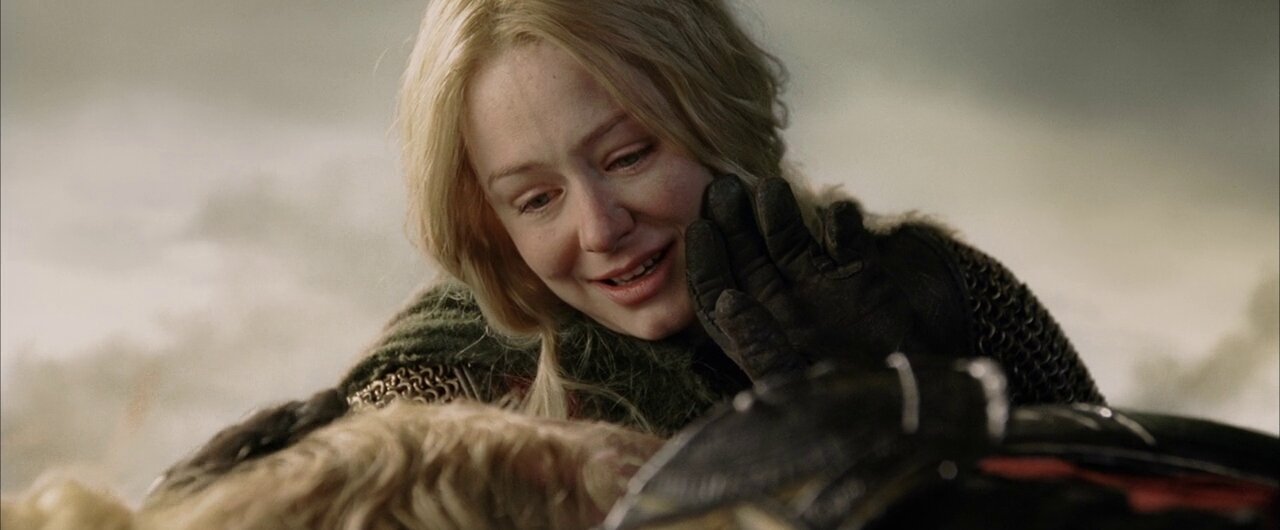Tolkien Tuesday: Aragorn and Writing Characters in Transition
“Look!” said Pippen, “Strider the Ranger has come back!”
“He has never been away,” said Aragorn. “I am Strider and Dunadan too, and I belong both to Gondor and the North.”
The heart of any good story is change.
If nothing changes, the story isn’t worth telling.
Every plotline should revolve around it. Every character. Even the world built inside that fiction.
It all goes through change.
For changing characters, there’s plenty of time spent in the abyss of the unknown of transition.
There isn’t a neat and orderly line dividing point A and point B. The journey from one to the other is a long difficult road most of the time. And at the very least, there is some struggle with identity internally, if not also externally.
In The Lord of the Rings, Tolkien shows plenty of characters that go through change. The world is changing, after all.
Aragorn, in particular, is a case study in character change. So let’s dive in.
The most obvious point is that we aren’t even introduced to him as Aragorn. He’s Strider, one of the Rangers who are shrouded in mystery and danger. (And has the most bad-ass introduction in the movie–see above.)
He doesn’t even have a good sword on him. This broken thing only raises more questions than answers.
So how do you get a character to go from the sketchy vagabond to the king of all future hopes of goodness in the world?
Step by step. A slow, sometimes messy, transition.
We can talk about character choices molding who they are, but I already touched on that. Remember, change doesn’t always mean good things.
So what’s another way to grow a character?
With other characters, of course.
Think about your own life. What influences you the most? Most often, it’s other people.
We are born for community. For better or worse, we absorb traits from those around us.
Aragorn is no different and Tolkien perfectly illustrates how you can grow a character like this too.
When the Fellowship leaves Rivendell, Gandalf lights the way. Literally when they get into Moria. But, Aragorn is always adding his thoughts.
This is practice. He is learning how to lead more than a group of Rangers in the North.
During this time, he learns from the wisdom of Gandalf.
In the book, Aragorn is the one who absolutely refuses to allow the Fellowship to go into Moria. He’s been through once before and the presence he felt there was enough to skip any revisits.
Gandalf thought that the mountain passes posed more of a threat, not only for frozen Hobbit-cicles, but also for the watchful eye of the Enemy. Secrecy was so important he was willing to risk Moria.
Gandalf eventually gets his way and things don’t go great.
But this is where the lesson for Aragorn comes in.
Gandalf doesn’t try to pass off the blame. He doesn’t try to run from the consequences of their passage in Moria. He steps up to face the problems that come his way as a leader.
And pays the price.
As Aragorn watches Gandalf face the Balrog, we can assume that lesson is passed on. This is what it means to be a leader: making tough decisions and accepting whatever consequences those decisions have.
Don’t lie your way out. Don’t pass the responsibility on to someone else. Don’t run from your problems.
And running is looking like a pretty good option right about now
Later the Fellowship breaks under Aragorn’s leadership. Some of it fell apart due to his indecision.
Again tough choices. Protect Frodo when he himself could fall to the Ring’s corruption or try and save Gondor when Frodo needs a guide?
He doesn’t run from any possible mistakes he’s making or fall to despair like Boromir. He remains loyal to his companions and goes to save Merry and Pippen, even if it means he will go into the heart of enemy territory. Even if it means delaying what he wants.
Not all of Aragorn’s lessons and change come from other leaders either. (And he certainly learns more from King Theoden.)
But, Eowyn has more than a few things to say about doing the right thing even when you are alone.
In Return of the King, Aragorn is leaving the main army and taking a different path to Minas Tirith. The path of the dead. Not exactly the first attraction on the map you want to go to, but it’s his duty.
Eowyn wants to go too. She wants to fight for the people she loves, just like the men.
Her duty, though, is to stay at home and fight if the battle at Minas Tirith goes ill.
Then comes some of the best dialogue in the whole series:
“All your words are but to say: you are a woman, and your part is in the house. But when the men have died in battle and honour, you have leave to be burned in the house, for the men will need it no more. But I am of the House of Eorl and not a serving-woman. I can ride and wield blade, and I do not fear either pain or death.”
She can fight too and is more than willing to make the same sacrifices as the men. Is her duty to stay behind with honorable intent? Or to protect her when she needs no protecting?
Even Aragorn tells her that she needs to stay behind. But he doesn’t see the difference she wants to make. The intent of her heart.
And she makes every difference.
Without her, the Witch-King would have kept sweeping through the ranks of Rohan and Gondor. She is the one that kept Theoden alive long enough to pass on the title of King to Eomer. She saves Rohan, not only from a very real threat of Mordor, but by preserving the honor of the King.
He doesn’t die in darkness and disgrace, but in the company of a proven warrior.
If she hadn’t done the right thing, in spite of protests, who knows what would have happened.
Less weeping on my end, that’s for sure
Aragorn has to face the same thing when he decides to march to the Black Gate. Plenty protested going to more war after so much death at Minas Tirith. And to empty out the defenses for what? Many didn’t know Aragorn’s intentions: to give Frodo a fighting chance.
But it was the right thing to do.
He thought he was marching to his death. He thought his hope to be king would die at the gates of Mordor. But this war was about more than his kingship and duty.
Just like Eowyn taught him.
So think about Aragorn’s lessons when writing your book.
Who surrounds your characters?
How do they influence one another?
Their journey of change should bounce off each other.
The transition from point A to B should come with plenty of complications. Lessons learned from other characters. Choices that bring consequences.
You need to treat your characters like they are alive. That even when they are unaware of it, those they choose to surround themselves with will rub off on them. And vice versa.
If your characters aren’t changing, especially your protagonists, your story remains stagnant too.
Want to geek out over more Lord of the Rings together? Join my newsletter below and learn how to writing like a geek can help you create stronger stories.









